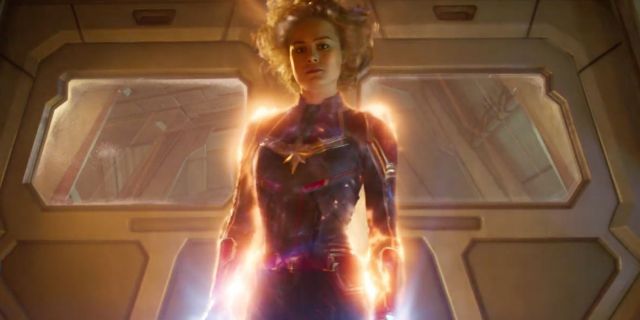Power scaling is the process of gauging a fictional character’s relative capabilities by comparing them to other beings within their narrative universe. Fans of everything from superhero comics to video games engage in this fun exercise to dream up answers to questions about who would win in a fight. The Marvel Cinematic Universe currently has a power-scaling problem that emerged immediately after they introduced Captain Marvel, their strongest superhero.
One of the sad truths of the Marvel Cinematic Universe is that movie production will never be much like comic book production. It doesn’t cost much to make a comic book, but every superhero movie is a nine-figure investment. Comics can throw in additional characters, scenes, and bizarre plot elements with very little overhead. This logistical reality should enforce restraint, but it tends to reduce opportunities while enabling the studio’s worst impulses.
Captain Marvel is the MCU’s mightiest hero

Marvel characters exist at various levels of power. Marvel provides what it calls a Power Grid, which lays out traits like Intelligence, Energy Projection, and Fighting Skills on a seven-point scale. Mutants in the Marvel universe have a scale marked with Greek letters, which identifies beings with abilities that could destroy the Earth. Fans have developed levels that identify a fictional character’s destructive yield as if every superhero and villain were a bomb. The easiest way to measure power in the Marvel Cinematic Universe is to watch Avengers: Infinity War and Avengers: Endgame. Watching a Marvel hero tangle with Thanos provides a fairly sound method of judging their raw power. Captain America, for example, could hold his own against Thanos for a while with Mjölnir, but he’d be outmatched otherwise. Thor fights on fairly even ground with the Mad Titan, as one good blow from either would kill the other. Captain Marvel could decimate his army and defeat him in single combat. She is the clear contender for the most powerful being in the MCU. This has upsides and downsides.
Captain Marvel raises unfortunate questions
Since the Avengers first assembled in 2012, every Marvel project has had to deal with several obvious questions. Every time someone threatens the Earth or beyond, someone will logically ask why only one hero is tackling the issue. Was Ultron not enough of a threat for Nick Fury to activate the pager Carol left him? What about Loki’s invasion of New York? These questions extend far beyond Carol. Why didn’t Captain America call Tony Stark when those Nazi airships would have killed most people on Earth in Captain America: The Winter Soldier? Couldn’t the Guardians of the Galaxy pick up Thor so he could help defeat the High Evolutionary? The answers to these questions are usually obvious. The writers didn’t want that to happen in the solo movie. There’s a thin line between crossovers and solo projects these days, but the line remains. Captain Marvel raises the question in almost every case, as she could save countless lives by eliminating foes that pose almost no threat to her. Almost every project Carol appears in has to waste some time explaining where she’s been to answer those questions. However, her power poses a bigger problem.
Captain Marvel invites challenge

When Vision argued for Iron Man’s side in Captain America: Civil War, he pointed out the fact that the threats against Earth have only escalated since heroes like Tony appeared on the scene. He theorizes that their presence “invites challenge” by entering the planet into a larger conversation that they aren’t truly ready for. He was partially proven right when Thanos attacked, but his true prescience shows itself in the narrative. The curse of blockbuster cinema is eternal growth. Every sequel must build on the work that came before. The follow-up must include larger things exploding than any previous entry. If the first movie put the fate of New York City at stake, the next must threaten the United States, and the one after that must put the world in jeopardy. Every Captain Marvel villain has to threaten something larger than a single planet. Carol can’t be seen wasting her time on a mere nationwide threat. She has to face ever-escalating gods that could wipe away the universe with a flick of their wrist. This forces her apart from most of the other Avengers and keeps all of her stories on the same exhausting galactic scale. Small, modest superhero stories can’t feature her.
Superman is a complicated character to bring to the big screen. Modern superhero filmmakers confuse hope with childishness and misery with maturity, prompting them to drown Clark Kent in an insufferable gray cloak of sadness in the misguided pursuit of “realism.” The other problem with Superman is that he’s a nigh-omnipotent god who could theoretically solve any problem without much effort. This forces uncreative studio executives to pit him against increasingly esoteric devils because they can’t imagine an outside-the-box foe offering any reasonable challenge. That’s Captain Marvel’s situation. She can’t develop as a character because her foes must always be the end of all life in the universe. She can’t be a functioning member of any team because she can’t be seen working beneath her station. These unfortunate truths leave Captain Marvel in a bizarre limbo that could keep her from attaining the station she deserves. Fans will likely love seeing her punch the next Avengers-level threat, but she could be so much more.











Leave a Reply